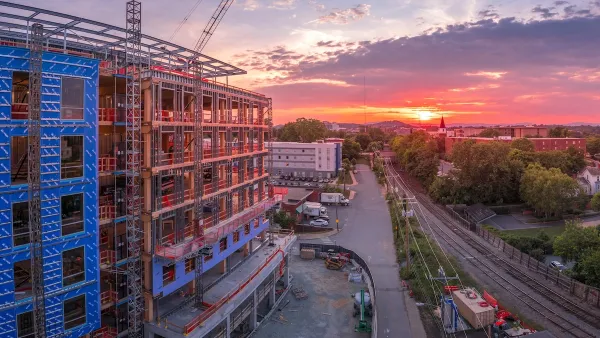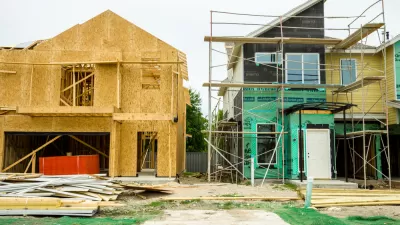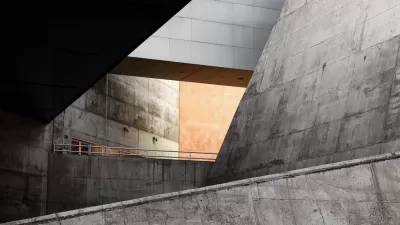Development that depends on subsidies is not fostering true growth and instead is a financial house of cards.

"Most cities and towns in North America are functionally insolvent. This is not hyperbole. It comes down to a simple question: Is new development producing enough wealth to fund the long-term maintenance of its own infrastructure—let alone public safety and all the other services that we expect government to provide?" asks Charles L. Marohn, Jr.
The answer is no, he says, because growth and productive growth are not the same thing. In car-centric cities, tremendous amounts of money are poured into streets, parking, and other infrastructure, but the return on investment is low. One example is big-box retail, where the financial productivity of properties, measured as value per acre, is generally dismal compared to more robust downtown, mixed-use developments.
He suggests that municipalities focus on strategies that foster creative reuse and redevelopment instead of development patterns that require huge subsidies. "America needs to step off the kinetic growth treadmill and embrace an approach that truly builds wealth and serves our citizens. We need to shift to a bottom-up approach for building our cities, one freed from the pressures of national growth targets."
FULL STORY: Opinion: This ‘Ponzi scheme’ surrounding development leaves most cities and towns functionally insolvent

Planetizen Federal Action Tracker
A weekly monitor of how Trump’s orders and actions are impacting planners and planning in America.

Chicago’s Ghost Rails
Just beneath the surface of the modern city lie the remnants of its expansive early 20th-century streetcar system.

San Antonio and Austin are Fusing Into one Massive Megaregion
The region spanning the two central Texas cities is growing fast, posing challenges for local infrastructure and water supplies.

Since Zion's Shuttles Went Electric “The Smog is Gone”
Visitors to Zion National Park can enjoy the canyon via the nation’s first fully electric park shuttle system.

Trump Distributing DOT Safety Funds at 1/10 Rate of Biden
Funds for Safe Streets and other transportation safety and equity programs are being held up by administrative reviews and conflicts with the Trump administration’s priorities.

German Cities Subsidize Taxis for Women Amid Wave of Violence
Free or low-cost taxi rides can help women navigate cities more safely, but critics say the programs don't address the root causes of violence against women.
Urban Design for Planners 1: Software Tools
This six-course series explores essential urban design concepts using open source software and equips planners with the tools they need to participate fully in the urban design process.
Planning for Universal Design
Learn the tools for implementing Universal Design in planning regulations.
planning NEXT
Appalachian Highlands Housing Partners
Mpact (founded as Rail~Volution)
City of Camden Redevelopment Agency
City of Astoria
City of Portland
City of Laramie





























